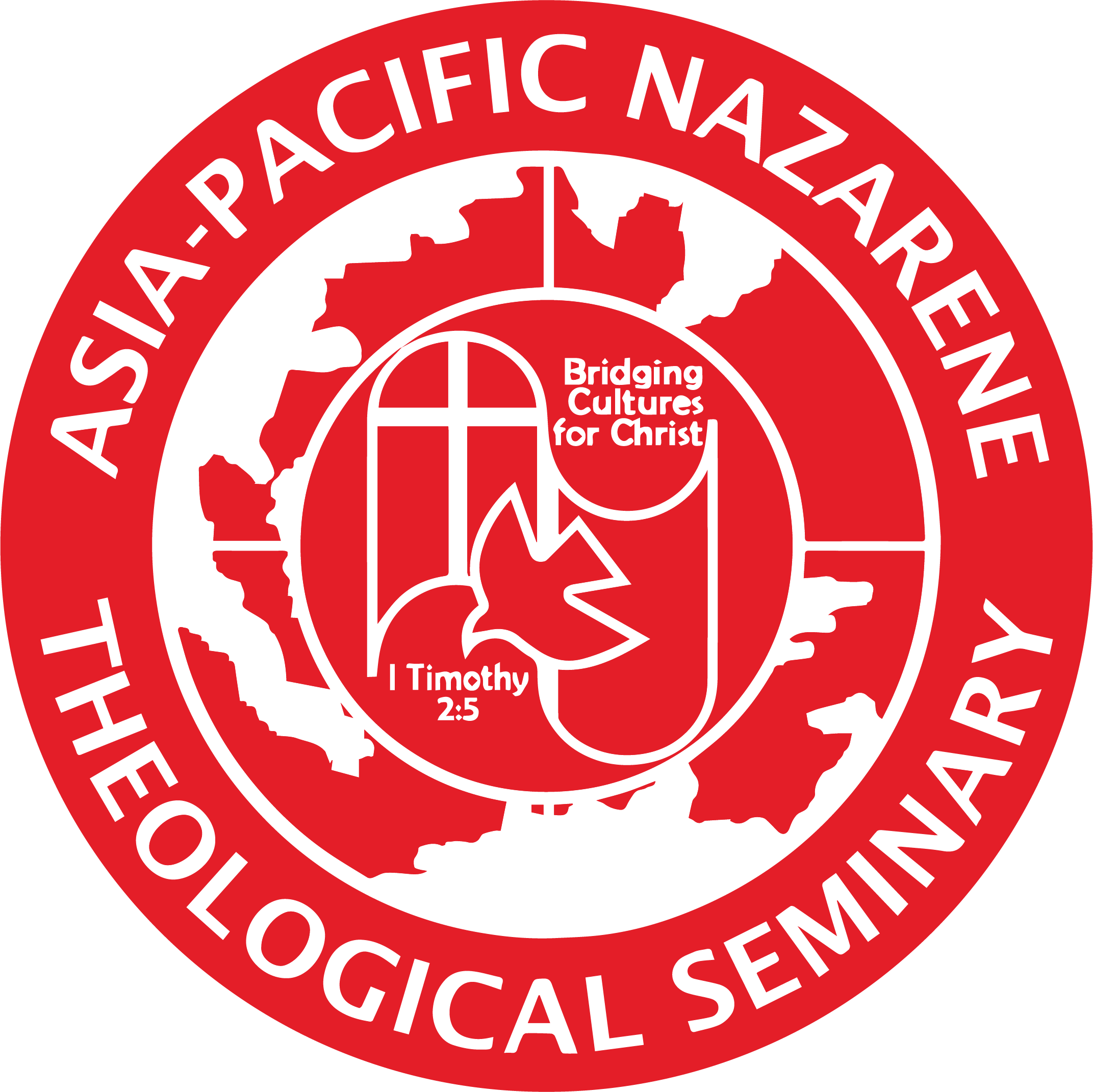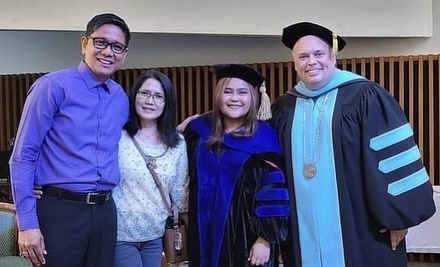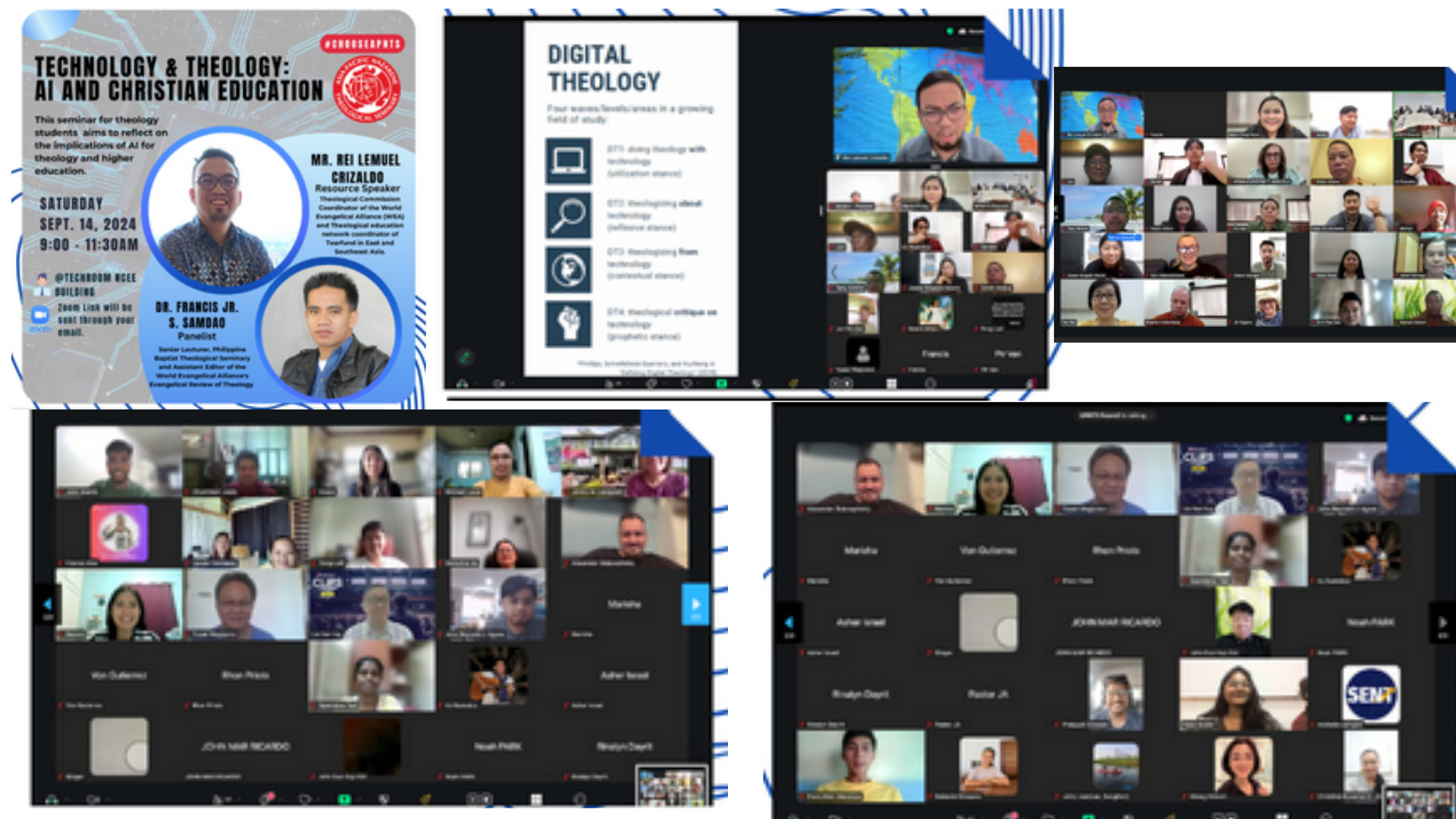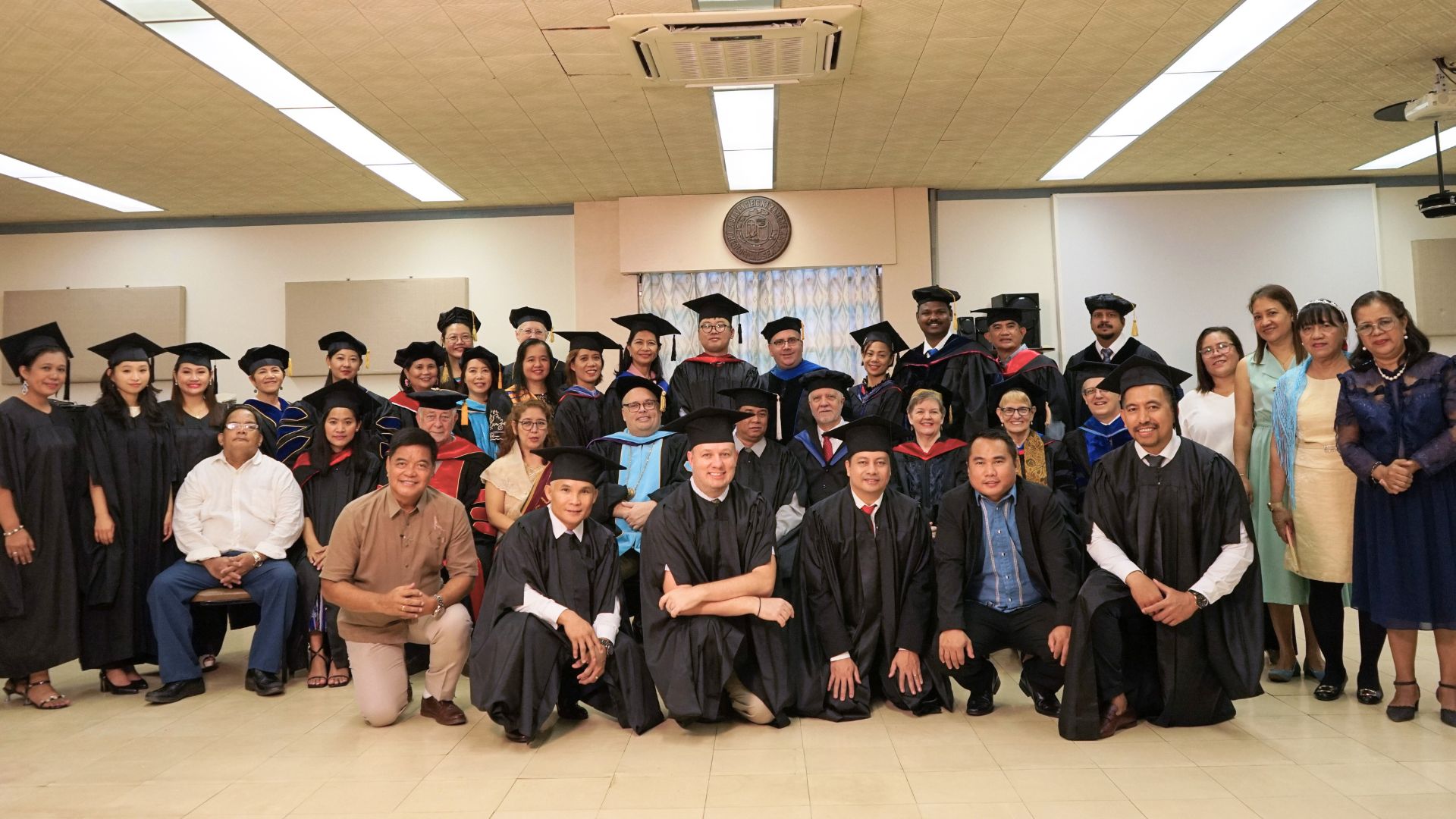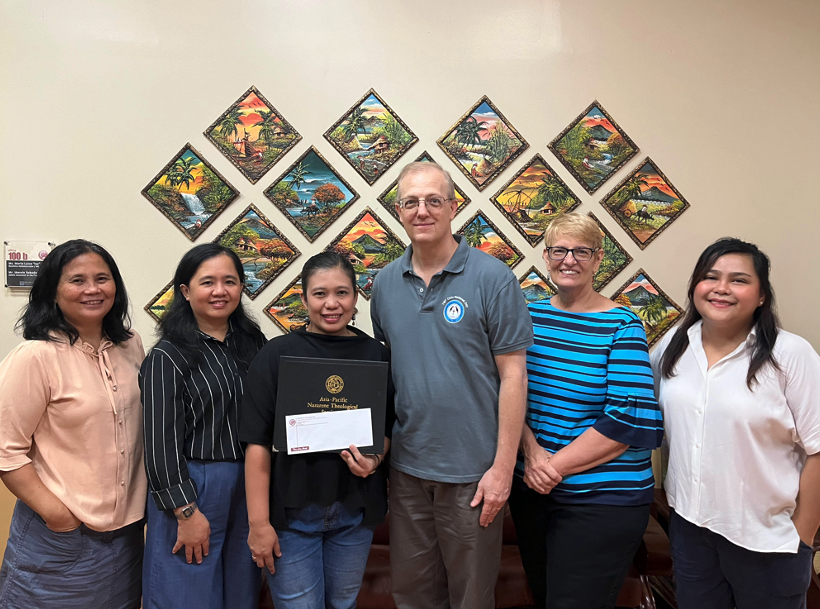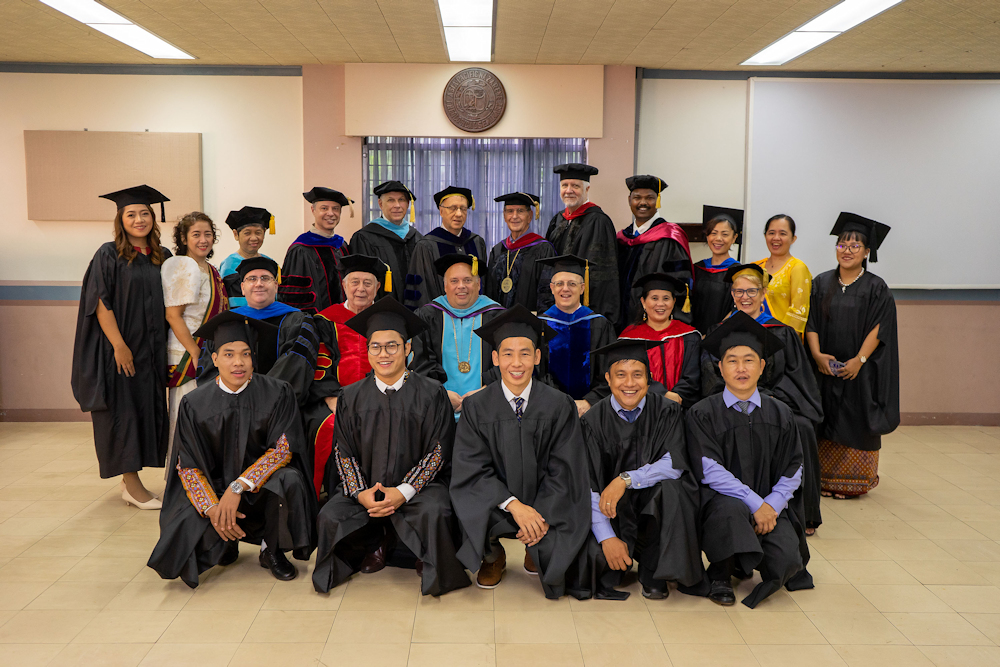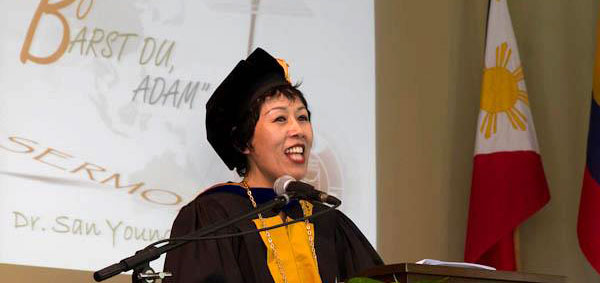
WO WARST DU, ADAM?:WHERE ARE YOU, ADAM?
Genesis 3:7-8
People often ask questions about who they are,– “who am I”, “who are we?” Who are you? Do you know who you are? In order to know who you are, your identity, you need to go back to your own parentage. Knowing one’s identity is important because one’s identity sets the direction how one lives and where one should go. Knowing one’s own past, which has formed one’s identity, can show whether one is going astray from where one supposed to be. In this light, knowing one’s past is very important. Without the past, one cannot really tell where one stands or where one should be heading. If you trace your past further back, you can discover how your parents and grandparents lived and their legacy for your family. Some of you would find out that you are following your parents’ footsteps in many ways, though this might not be the same case for you for some reason. The way your parents lived has in a way, verbally or non-verbally taught you how to live, and you are formed by how your parents live. At this point, I would like to ask you if you know who you are, where you began your journey in life, and where you stand presently. Recently, I had a chance to think about the very questions I am asking you today.
I was asked to write about my father, who was a Nazarene minister for 31years and is now in heaven. The Korean Nazarene District is editing a book on pastors from the beginning of Korean Nazarene history. This incident made me think seriously about my father, how he lived, and what kind of legacy he left as the direction for us to follow in our lives. It subsequently prompted me to think about who I am in relation to what kind of life I am to live, where I am, and where I am headed.
My father died when he was 57 years old in Saint Louis, MO doing ministry in the Church of the Nazarene, but most of his ministry was in Korea. He planted 5 churches, Wha-dong Church in Gahngwon Province, Songchon Church, Namdangli Church in Choong Cheung Province, Ho-ahm Church in Kyoung-ki Province and SD Church in the states. He not only planted churches, but at every Korean church he planted, he also built and dedicated a church building and a parsonage. He also pastored the Sang-ahm Church and a short time at the Segwang Church. At Jinri Wa Gidung Church, he pastored there for 10 years, and built and dedicated a church building and parsonage as well.
As you can see, he was a church planter and church builder. My father was the one who planted the most churches amongst my father’s colleagues, as far as our family knows, though Rev. Gi Seo Park’s family might contest to that. Rev. Gi Seo Park was the first D.S. in Korean Nazarene history. My father was not involved in church politics, but moved from one remote place to another, one church after another in the countryside in Gangwon, Choong Cheong, and Kyoung-ki Provinces planting churches. My father had never been D.S., as you can see why. My father was an educated man in his own right, read a lot of books in various areas of studies: philosophy, politics, history, and literature. He was known as a genius/bookworm in the Korean Nazarene circle according to Rev. Shi Churl Kim, who is still the senior pastor in his late 70’s at Bethel Church, a prominent and historical Nazarene church in Deung Chon Dong, Seoul. Last year when I visited Rev. Kim, he introduced me to his congregation as a daughter of Rev. Young Joon Lee who was known for having so many children, nine altogether, and who was also known among the Nazarene circle as a genius, –something I didn’t know about my father. I still remember my father reciting poems of Chinese poets of old, Li Bai and Du Fu; Reiner Maria Rilke and Heine, German poets; Byron, an English poet; and Tagor, an Indian poet. No wonder I love poems!
As I mentioned, my father was a church builder, sacrificially giving to build and dedicate churches. My father was a well-off pastor, relatively speaking, when he first started his ministry, because my grandparents were rich by Korean standards in the 50s and 60s. At that time in Korea, if you had a bicycle, you were considered rich. My grandparents had a vehicle to do business. So my father inherited properties: land and a house. Every time my father had a building project, it was my father who gave sacrificially to the church. I remind you that my father also had nine children to feed and educate, but he gave and gave until he depleted all his money, yet he still continue to give. One day the second D.S., Rev. Jong Soo Kim who succeeded Rev. Gi Seo Park, the first D.S., summoned my father and scolded him for giving so much to the church. He said, “You have nine children to feed and educate, what are you going to do with your children if you constantly give like that.” Can you imagine a D.S. scolding a pastor for giving so much to church? To that my father answered, “what I have is not mine, it is God’s, including my children. I know God will take care of God’s own.” This story was publically repeated by Rev. Jong Soo Kim himself, at my brother’s wedding in San Francisco. Of course we already knew about that story, because our mother had told us long before.
My father’s life philosophy was, “Would I please God or humans?” He did not compromise his principle of pleasing God, to please humans. He was a man of gentle temper, unlike me, but when it came to doing God’s work, he didn’t compromise whatsoever. That was my father.
He served God without fame, money, or power. He taught us with his own life style, that in serving God we are to serve God without seeking fame, money, or power. Not many people know about my father, except the members of the churches where my father served. To them, he was a real pastor, so they say. You can find that out yourself by asking those members still living in Song Chon, Namdangli, Jinri wa Deung, Whadong, Ho Am, and SD Church . To us, his children, my father is the most respected pastor on this earth. We take pride in being children of Rev. Young Joon Lee. My brother, who is an international lawyer and an executive officer of Samsung Firm, used to call my father to ask while he was studying at U.C. Berkley, whether he can change his major to Religion. He wanted to become a pastor, saying that it seems like there is no worthy job like being a pastor serving God. To my brother, my father was holding the worthiest job in the whole world. My brother, however, did not become a pastor, because he did not have a calling from God. Once in a while we say amongst ourselves, “we are children of Rev. Young Joon Lee” in a way to check one another whether we are living as our father taught us to live. I check myself every day to see if I am serving God without seeking fame, power, or money; if I am giving my life sacrificially without worrying about my future; trusting that God will take care of me after my retirement; and if my priority is to please God or humans.
Today we celebrate our heritage and foundation day, the time for us to reflect and check on who we are and where we stand in relation to where we were and where we are headed. What is our heritage? Our school, Asia Pacific Nazarene Theological Seminary is a Nazarene school in the Wesleyan Holiness tradition. This is who we are. But what does that mean? Do you know who we are? Where did we come from, how did we began, why are we Nazarenes? What are the distinctive features that make us different from others? In order to answer these questions we have to go back to our foremothers and forefathers who gave birth to the Church of the Nazarene in the Wesleyan tradition. We have to know our past, to know who we are, to know where we stand, and to know where we should be heading for the future. Of course I am not going to cover our history in its entirety, there is not enough time to do that. Instead, I will cover the distinctive features of our forefathers and mothers, which they emphasized and lived out.
Our foremost father, John Wesley, was against- racism. He was “credited as the first man of influence to write a published work on the evils of slavery.” He saw slavery as “execrable sum of all villainies.” To him, holiness without social holiness is dead holiness. There is no such thing as sanctification if one’s sanctification does not see social evils prevalent in the society. When told that slavery was authorized by law, John Wesley responded and said, “… can law, human law, change the nature of things? Can it turn darkness into light, or evil into good? By no means. Notwithstanding ten thousand laws, right is right, and wrong is wrong still. There must still remain an essential difference between justice and injustice, cruelty and mercy. So that I still ask, who can reconcile this treatment of the Negroes, first and last, with either mercy or justice?” To John Wesley, Holiness should be realized not only in our individual hearts, but also in our midst, in our streets. Let justice, the Holiness of God, roll like water in the street was believed and preached by John Wesley. In the early Free Methodist Church, our sister denomination, one of the things that its members were “free of”, was slaves in their households. They had no slaves in their households. John Wesley states that, no matter what humans or human laws say, wrong is always wrong and right is always right, no compromise whatsoever. That is us!!
The founder of the Church of the Nazarene, Phineas Bresee was convicted that Christians should share gospel and do ministry for, to, and with the poor. This caused him to withdraw from his appointed ministry of the Methodist Episcopal Church. His ministry focus was to the homeless, the urban poor. Later in his ministry, he became convicted that “the best ministry for the urban poor is to create strong churches that ministered to entire families” and out of such conviction, the Church of the Nazarene was formed, to do an effective ministry for the poor. The very name “Church of the Nazarene” was adopted because “it identifies with the ministry of Jesus, with the toiling masses of common people for whom Jesus lived and died.” An “incarnational ministry” was modeled by Jesus. The Church of the Nazarene whole heartily embraces living and doing ministry for the poor in our midst. Hey, that’s us! No wonder why we, APNTS, is emphasizing so much on reaching out to the underprivileged communities surrounding us! No wonder why Dr. Donahue is so keen on doing ministry for and with these Golden Hill youth and the street children!!
The Wesleyan Holiness tradition is known for women leaders. From the inception of the Holiness movement, we have had women leaders, starting with Phoebe Palmer, Amanda Smith, Mary Lee Cagle, Agnes Diffee, Natz Petallar, San Young Lee, and Annabelle Tabuena, to name a few. It is our great heritage that we have had women preachers from the founding year, 1908! Wow! Can you believe it? One of the mainline churches in the States, the United Methodist Church, started ordaining women in 1956. We are ahead of them by half century! You know that’s us!! We believe that God calls women and men to do God’s ministry.
Another distinctive feature of our heritage is that the Nazarene church is a “missional” church. It “has been committed to obeying the Great Commission since its inception.” Now the denomination is sending “418 missionaries to 156 world areas, including nine creative access areas. This amounts to a total number of 702 missionaries, if we add the 284 Mission Corps volunteers serving in 49 world areas.” How many mainline denominations are commissioning missionaries at the denominational level, like ours? Our school came to be, as a part of the “missional” effort of our denomination. Most of our professors are missionary professors sent by the church to teach, educate, and train church leaders for the Asia Pacific Region and beyond. Our school is a “missional” school. That’s us!!
We have traced back our heritage which formed our identity, by looking at important and distinctive marks left for us by our foremothers and forefathers, to carry on. The question comes to us, then, “Where are we?” “Where do we stand?” Are we still holding on to our heritage, being continuously formed and renewing our commitment to the calling of God which came to us through our forefathers and foremothers? Or have we forgotten who we are? Have we gone astray from where we were supposed to be, from our commitment to God? Let’s look at those features one by one and see for ourselves whether we are being true to our calling.
When it comes to our identity of being “missional”, we are holding on to who we are as a “missional” church. Don’t you think? We are reaching out to 156 countries worldwide, including creative access areas. Denominationally, there are 418 missionaries. We thank God for that. Though it might be a challenge for us to be “missional” in the face of the global economy crisis which has hit every country, knowing that we do not do mission with money, but with God’s power, I know we can be still “missional” if we have the will to be. Our forefathers and foremothers still sent missionaries during the Great Depression that hit the U.S. in the 1930s. They encouraged one another by saying, “Folks, can we do a just little bit more for God?” Like our foremothers and forefathers did, if we can do a just little bit more than we can afford to do, we can manage it, we can hold on to God’s great commission of making disciples of all nations.
How about ordaining and raising up women leaders? We have had women preachers from the founding year, but how many women ministers are we producing these days? The United Methodist Church, which only started ordaining women in 1956, a half century later than us, have 12,000 women ministers engaging in pulpit ministry in their denomination these days. How about us? Do we ordain women for pulpit ministry still? Yes we do. There are women who are earning all the qualifications they need for getting ordained, but the problem is few are getting ordained. Even if they are ordained, very very few are being invited to be senior pastors. Instead, there are many women assistant pastors involved in children’s ministry or some sort of ministry at the secondary level. Not many women leaders are in the Church of the Nazarene fulfilling pulpit ministry. That is our reality in the States. In the Korean Nazarene church, the first woman ever ordained was in 1993, Rev. In Soon Jeong, a great preacher and a pastor. In the Myanmar Nazarene Church, women have never been ordained to this date. Our great heritage of ordaining women leaders and preachers from the founding year is a- never- heard- of thing in these countries. What a shame!!
Our foremost father, John Wesley spoke against racism, injustice, and racial inequality. There is no slavery in the literal sense of the word nowadays, but does that mean we are treating everyone equal? I see that churches are still segregated, black churches from white churches, Asian churches from Hispanic churches. Only recently at the last General Assembly, we had one non-white General Superintendent elected for the first time in the history of the Church of the Nazarene! It is a cold reality of the Church of the Nazarene that Asian and colored pastors do not have room in the white churches. I do not know of any Nazarene church that has a colored pastor, brown or yellow, as their senior pastor, in a white church setting. Even if they try, no success! I know that for a fact from my personal experience. Unless one conforms to the white dominant culture, one is made to feel uncomfortable in the church. I still remember the look of an Afro-American student who was stopped being Afro in the middle of the service when he was worshipping in his own Afro-American style. He was told by a white Nazarene who happened to be a professor of Nazarene University I graduated from, that it is a white church and whites do not worship like he was doing. I still remember the face he wore in that moment, the look one wears when one is made to feel less than perfect, less than normal, if not less than a human….!
Doing ministry for the poor was the primary focus of Phineas Bresee. The Nazarene Church was named as such to be identified with the ministry of Jesus who was incarnated to be with the poor and down-trodden people. How about us, who are supposed to carry on the legacy, our founder had left for us? Where do we stand in terms of embracing the poor in our midst? Can we still say we are “Nazarenes” whose primary focus of ministry should be the poor, as our forefathers and foremothers did? Sadly speaking, the reality of the Church of the Nazarene is that the church has abandoned the poor; we are avoiding the poor. If the area of the church is becoming surrounded by the poor and underprivileged people, then the church is busy selling the building and the property to be able to purchase a church building in the suburb area where affluent people reside. That is our reality in the Church of the Nazarene. Dr. Brian Wilson who is the D.S. of Chicago district of the Church of the Nazarene, who delivered the Nelson Holiness Lecture Series not too long ago at our school, was sharing the same story. For a long time, The First Chicago Church of the Nazarene’s church building was left neglected and abandoned. No ministry whatsoever was being done because no one wanted to do ministry in the downtown where the poorest of the poor of the city resides. But speaking about “incarnational ministry” of Jesus, he shared with us the story how he directed The First Chicago Church of the Nazarene to begin doing ministry in the midst of the poor, for the poor, from that building. While I was listening to such a moving story, I could not help but crying, shedding tears and thought, “Yes. That’s it. We have to reclaim our heritage and our identity. That is our hope of being true to who we are, to our calling.” After the service, I spent five hours in cooking and invited them for dinner, something I did not plan beforehand, saying to them, “Your title does not impress me. The titles of General Superintendent or District Superintendent never have impressed me but what you do, how you do ministry is what has impressed me. Please, keep up the good work. Do not ever depart from what you doing, “incarnational ministry”. That is the only way by which our church can survive.”
God has called us, you and I, to do God’s ministry. That is why we are here. We do not make our own calling. Our only job is to respond when the calling of God comes to us. If you are here on your own without God calling you, you are at the wrong place. God has called you and me for the work only you and I can do, as God called Adam to be God’s co-worker. Adam was to name the creatures of the world. In the context that without a name nothing exists, Adam’s work was to give other creatures meaning and a purpose of being what they were for God. Adam was to till the land and to take care of the creatures in the land, in the sea, and in the air. In the presence of God, Adam was to recognize God’s goodness, caring for God’s creatures in his daily living, having communion with God daily, recognizing God as the creator of all, including himself. That was Adam’s calling, his identity, but he departed from where he supposed to be, from what he supposed to be doing. He was no longer in the presence of God, away from his calling, disobeying God. From our text today we can see that, to Adam who has forgotten his identity, who was no longer in the presence of God hidden away, God’s call comes, “Adam, Where are you?” “Wo warst du, Adam?” Have you forgotten your calling, have you forgotten your identity? Adam, where are you, Wo warst du, Wo warst du, Adam?
How about you? Are you being true to your calling, your identity given to you by God? When you first responded to God’s calling, you had decided to follow and serve God with your life. Are you still there as you first gave your heart to Christ? Do you have the same fervor and love as you first had for God? Where are you? Where do you stand? Where are you heading? Have you been tempted to become like God, have you been tempted to seek pleasure, fame, money, and power, instead of seeking God in your life? What is your motivational factor? Is it money, is it power, is it fame, or is it God? Where are you? Are you in the presence of God or hiding away behind your own feeble attempt to be God. Have you ended up living in angst, false security, in the darkness where there is no God? Do you hear God calling you? Where are you now, away from your own place? Where are you now away from God’s original calling, your identity? Wo warst du, Wo warst du, Adam, Wo warst du, Wo warst du, Nazarenes? Where are you, Where are you? Do you hear?
